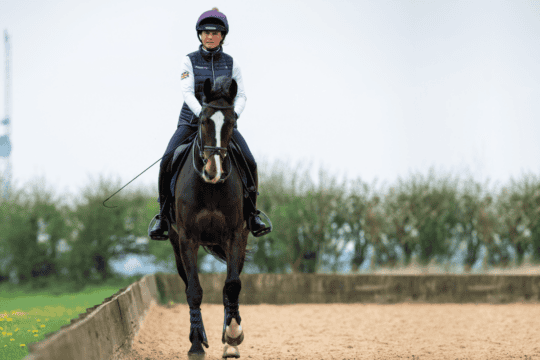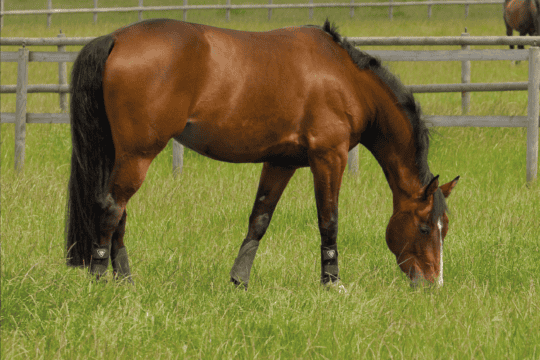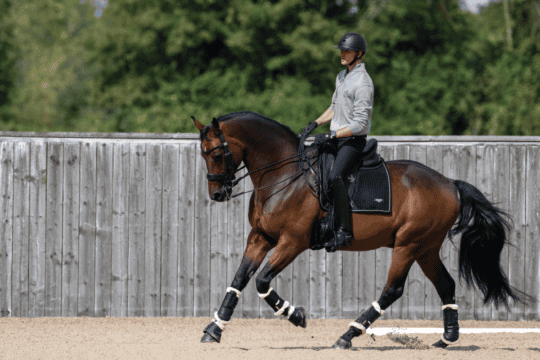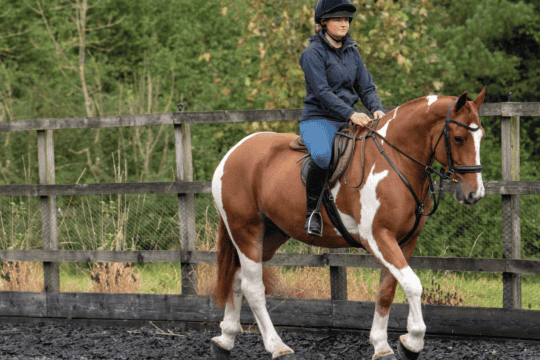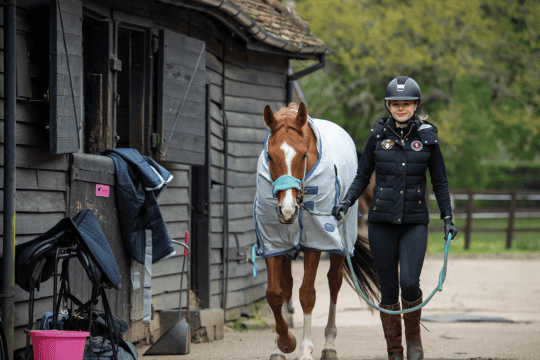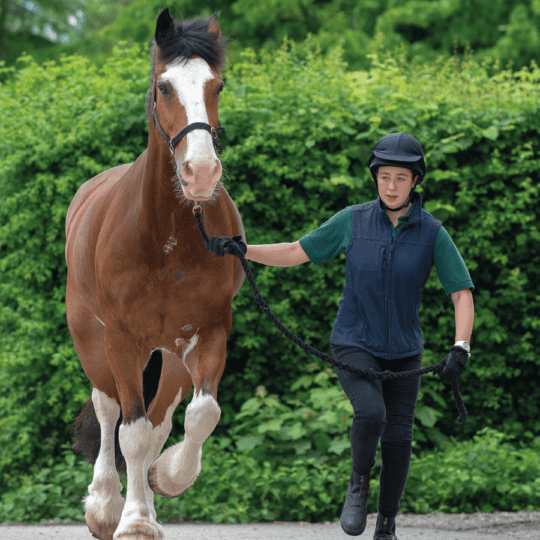Keep your horse’s mind active and free from stress this winter
Posted 22nd December 2021
Is your horse confined to his stable for longer during the winter months? Kanya Prescott’s on hand to help you keep him calm and healthy throughout
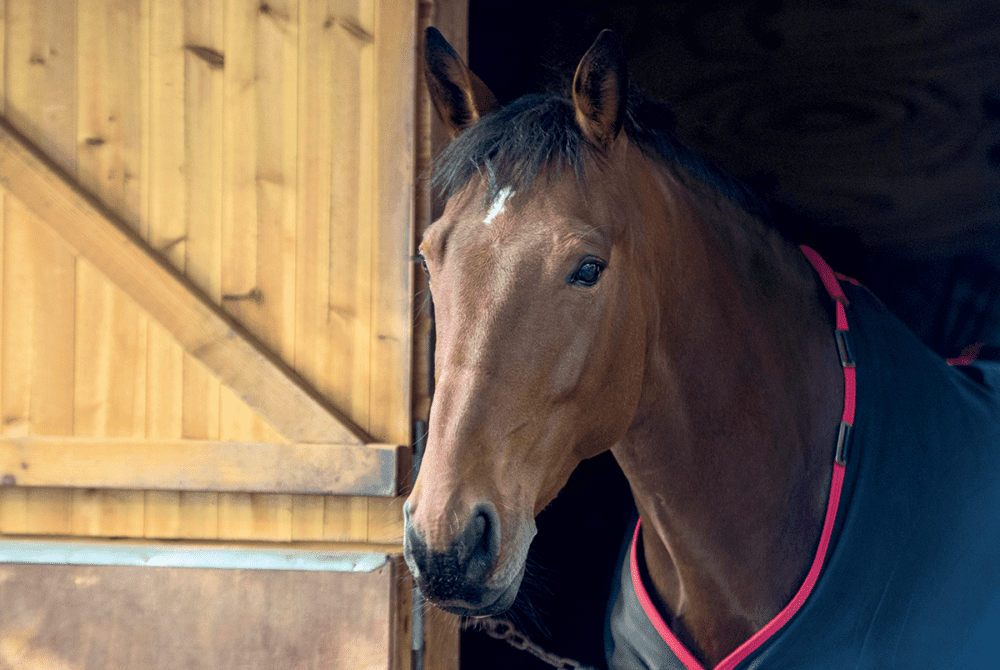
However you manage your horse through winter, his routine probably changes as the days grow shorter and the weather worsens. While being turned out with friends and constant forage is the best thing for any horse, sometimes winter conditions don’t allow it. With more time spent in the stable, it’s not unusual for owners to feel anxious about keeping their horse happy and feeling his best. Fortunately, there are lots of ways to help your horse feel calm should he need to spend less time turned out over winter.
A stable environment
Stabling through the winter is common practice and on some yards it’s compulsory. Unfortunately, more time spent in the stable can have a negative effect on behaviour, with many horses becoming stronger, spookier or more agitated – often compounded by less ridden exercise due to lack of time and light through the colder months. While it’s easy to feel frustrated by these behaviours and write them off as bad manners, understanding your horse’s natural environment and what’s causing him to act that way is key to helping him feel more relaxed.
Did you know?
Pain’s a common cause of behavioural change, so it’s worth ruling out discomfort with your vet as a first step.
Coping with confinement
In some cases, horses show stereotypical or repetitive behaviours, such as box walking, weaving or cribbing, when stabled for longer periods of time. These behaviours are coping strategies for stress, and it’s important not to simply try to prevent your horse from displaying them because this will only make him feel more stressed – worsening the impulse to show the behaviour.
Instead, focus on altering his environment to make him more comfortable, which should in turn reduce his need for coping mechanisms. A horse who’s turned out will be able to fill his time with natural behaviours, reducing his opportunity to show the repetitive behaviour. Recognising the early signs of stress can help you prevent repetitive behaviours from developing because you’ll be able to alter your horse’s routine before he feels the need to engage in coping mechanisms.
Natural solutions
If your horse will be stabled this winter, try to look at his box through his eyes. Here are some things you can do to encourage more natural behaviours…
Good neighbours
Stabling horses who are turned out together near one another provides consistency in their social interactions. Horses build relationships by spending time together and having different horses around all the time can lead to yours guarding his space or food, which can become stressful. They struggle to get used to changes within the herd and find it stressful to have to frequently establish and re-establish friendships, so a consistent group is key.
Rugged up
If your horse is rugged while in his field, try to give him time without it so he can enjoy mutual grooming with his friends. It’s proven to reduce heart rate, which will help him feel more relaxed, so try to provide opportunities for this behaviour when you can.
Fun forage
Horses tend to prefer a variety of forage types to choose from. You can still prioritise your main source – which is likely to be your horse’s grazing and hay – but small portions of short chop, such as alfalfa or chaff, haylage or straw can be a great way to keep him interested and allow him to make more choices about his living situation.
Top tip
Always introduce new feed and forage types gradually to allow your horse’s gut time to get used to it.
Want to know the rest of the tips on the natural solutions list? Grab your copy of February Horse&Rider, on sale 30 December 2021


